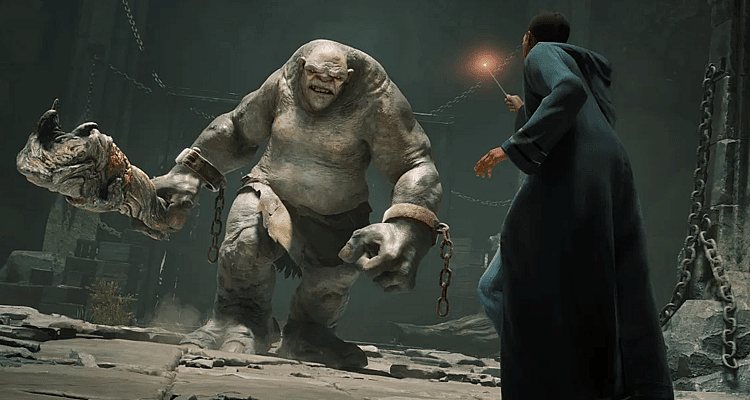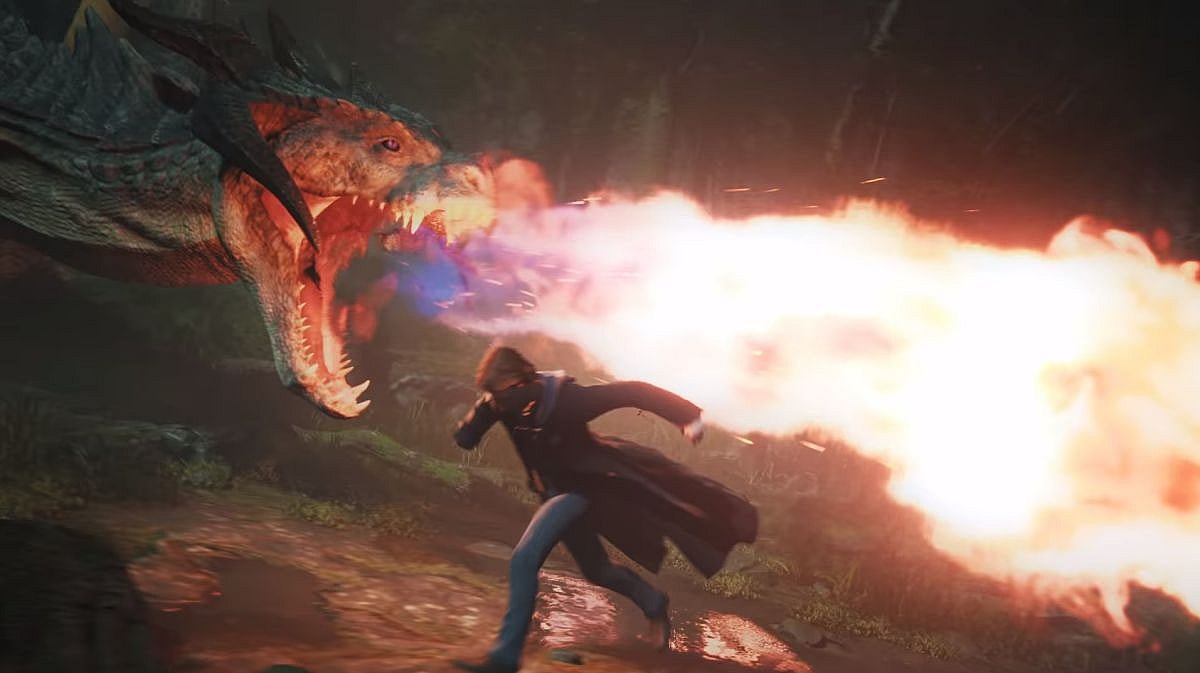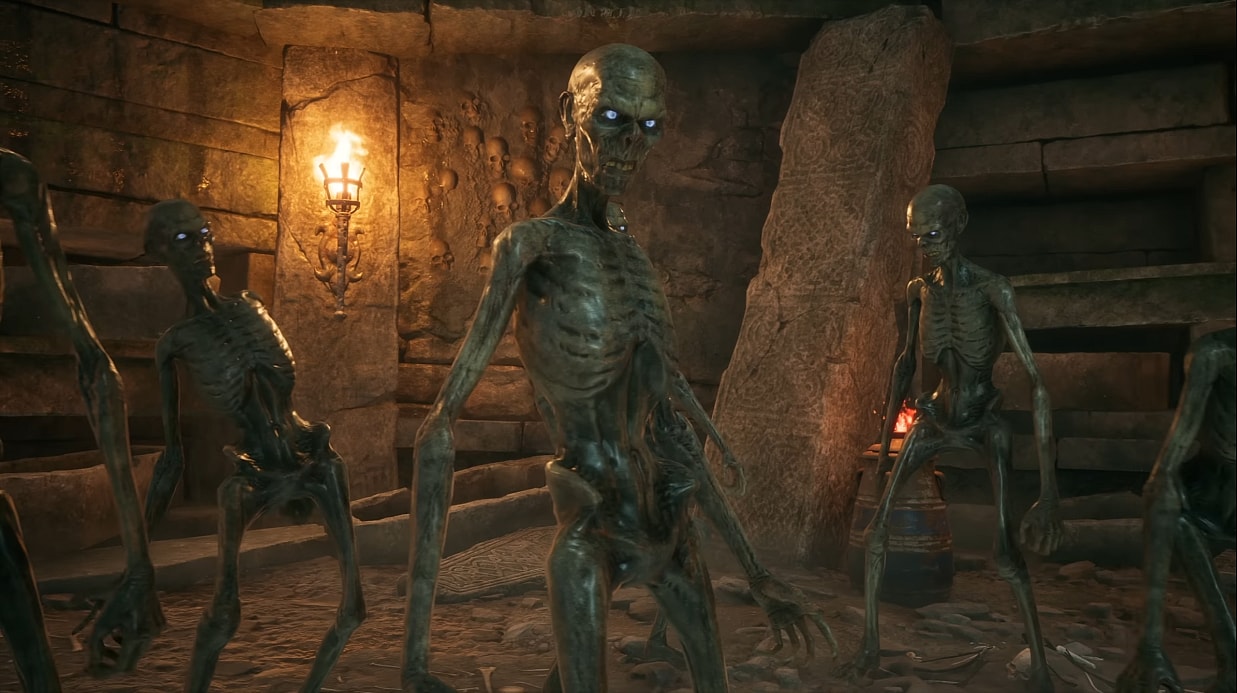Former ‘Hogwarts Legacy’ Producer Troy Leavitt Says Reaction To His Exit Was The “Canary In The Coal Mine” For Marketing Team, Speculates They Changed Strategies To Avoid A “Biased Press”

Former Hogwarts Legacy producer Troy Leavitt speculates reactions to his departure may have led the marketing team to “take the game directly to fans” in order to avoid the “biased press.”

Leavitt had previously come under fire after major gaming news outlets bore down on his so-called “anti-fem [feminism] and pro-GG [GamerGate] vids” on his YouTube channel. The outcry kicked up in early 2021, two years after Leavitt had last uploaded a video to the channel. Topics typically included social justice and the points raised by gaming critics such as Anita Sarkeesian.
Despite the outcry, Leavitt claimed he had disclosed his YouTube channel to Warner Bros. Games and revealed that “it didn’t appear to be an issue for them.” This made it all the more surprising when Leavitt quit Hogwarts Legacy’s development a month after the outcry first began.

Many assumed it was due to the controversy, but Leavitt revealed in his own video later that month he had left to help his family with a situation that had grown “chronic.” He claims talks with Warner Bros. about retiring came before any of the articles.
He also noted said articles (lacking any scandal beyond his opinion), “sure feels like” cancel culture, and nigh-all having little fact-checking. For example, many reported Leavitt was a Lead Developer (a false claim from the tweets that started it all), when in actuality he had that role for just over a year, then became a Senior Producer for the last four years.
The gaming press also used “broad smearing labels” such as racist and misogynist, seemingly without watching the videos. Leavitt even compared them to “propaganda press,” rather than “reliable press.”
Almost one year after quitting, Leavitt published a video discussing Hogwarts Legacy, just prior to the game’s launch. “To Those About to Play Hogwarts Legacy” opens with Leavitt admitting that he was looking forward to the game just as much as fans.
Even during his time, he was focused supporting the NPC behaviors team, and the team handling Hogwarts castle and its contents. Combined with not being involved with the project for nearly two years, many elements would be as new to him.

After briefly discussing the game’s development, Leavitt discussed quitting the project. “I suspect my departure from the studio served as a sort of ‘canary in the coal mine’ situation for the Hogwarts Legacy marketing team. It alerted them that they were dealing with a press environment that was considerably more hostile towards the game than I think any of us had anticipated.”
“Now I don’t know this for sure, but my guess is that they decided to change some of their PR and marketing strategy as a result,” Leavitt prefaced.
Leavitt theorizes, “They decided to take the game directly to the fans — which is who we were making the game for anyway — rather than try to swim upstream against a biased press that seemed dead set on overshadowing all the good work the team was doing, by painting everything with the scary brush of controversy.”

“I believe that this direct outreach to the fans from Community Manager Chandler, and the rest of the Hogwarts Legacy Community team, was a masterstroke of marketing brilliance and, well, you can see the results for yourself,” he praised.
Leavitt then explains, “That direct outreach to the Wizarding World fans allowed them to catch the vision of what the team was trying to do — and they, in turn, became some of the biggest supporters and promoters of the game.”
These efforts included two gameplay showcases, highlighting the game’s features, inviting fans and streamers as co-hosts to ask questions. Likewise, fans attempting to uncover more details from early gameplay and screenshots were having fun and “already playing” the game.

Leavitt highly recommends a 1999 GDC talk by Professor Brian Moriarty’s “Who Buried Paul?” to better understand the “phenomenon of constellating around the game” — wherein Moriarty explains how conspiracy theorists claiming Paul McCartney died in 1966 and sought evidence had become a “game” and community. Leavitt also considers it a must-watch for aspiring game developers.
“I sincerely believe that there is a lesson in this outreach between devs and players. I hope that more game devs studios start to appeal directly to their core audiences,” Leavitt advocated. “In our Modern Age of social media where fans and developers can readily interact, the need for a gaming press to act as an intercessory go-between, has been greatly diminished.”
“I think Hogwarts Legacy proves this, and I personally see this as a welcome and necessary change in our industry,” he concluded.

RELATED: Activists Launch Vile Attacks Against Asmongold After He Blasts ‘Hogwarts Legacy’ Boycotters
Leavitt’s theory that Hogwarts Legacy’s marketing was focused on the fans rather than gaming press may have some merit. The attempted boycotts were reported on by the gaming press, arguably framed as though those boycotting were a sizable group, or reporting that J.K. Rowling’s comments (which sparked the boycott) were transphobic, rather than that being the reception and interpretation of some.
Outlets like The Gamer also wrote editorials downplaying or casting doubt on the harassment streamers had received for playing the game and mocking those supporting the game. Sites like Kotaku still reported that part of the controversy stemmed from the “the right-wing views of Legacy’s former lead designer,” while promoting the “Trans Witches are Witches” Itch charity campaign bundle.
Wired even gave the game a 1/10 score in their review, linking to a pro-transgender charity at the end. In PC Gamer’s review-in-progress, the author lamented, “It’d be a lot easier to dismiss Hogwarts Legacy if it weren’t so good” — eventually giving it an 83 out of 100.

The Gamer and Checkpoint Gaming both refused to review Hogwarts Legacy; others have suggested some gaming news outlets may not have been able to get an early review copy. Games journalist Stephanie Sterling had already claimed to have spoken to a former developer of the game but later added to her claims.
“Got a little extra yesterday,” Sterling opened, before quoting her alleged source. “They stacked the deck with who they sent review codes to, hence why almost no reputable outlet got a code, and I was told they worked with IGN heavily to find their one writer who would touch it and be kind to it.”

Later Sterling followed up, “Someone from IGN hit me up to deny what my contact said, and countered by saying they actually struggled to get code and WB was being unhelpful.”

IGN’s review was very positive, giving the game a 9 out of 10, but featured a mid-review disclaimer regarding Rowling’s comments, the boycott attempt, and their insistence they would “continue to champion human rights causes and support people speaking with their wallets in whatever manner they choose.”
“As critics, our job is to answer the question of whether or not we find Hogwarts Legacy to be fun to play and why; whether it’s ethical to play is a separate but still very important question,” IGN confessed.

Earlier in his video, Leavitt discussed how his confidence in Hogwarts Legacy‘s development stemmed from Avalanche Studios’ development methodology. Namely, “seeking to understand and respect the IP,” doing the necessary research so the game can be made “by fans, for fans.”
Leavitt was so confident in how the game had been “so meticulously realized” that it will eventually be deemed Harry Potter canon by fans, and even speculated it would lead to a new spin-off film or series. He also discussed player-focused game design, and that players and developers shouldn’t be on “opposite sides of the field.”
